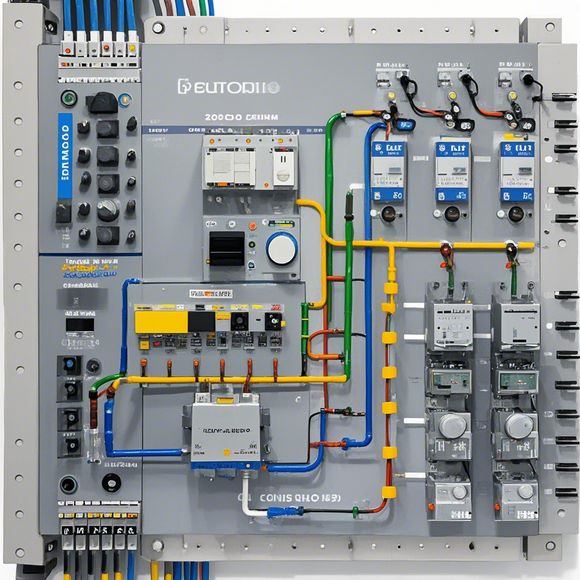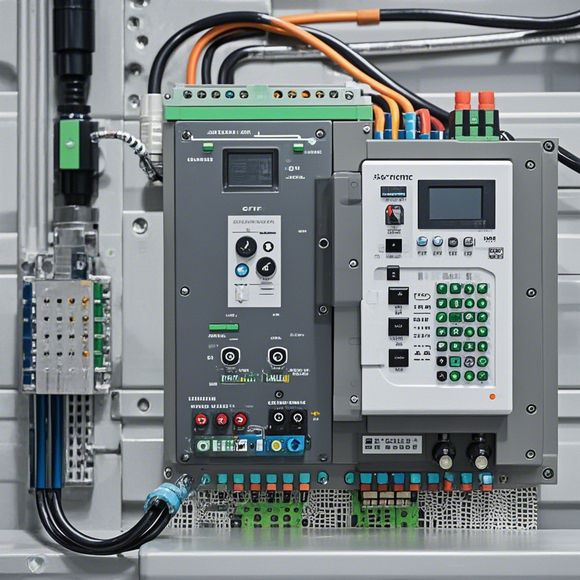PLC Controllers and Their Application in the Modern Industrial Environment
Introduction:
In today's world, where technology is at the forefront of every industry, the importance of having a reliable and efficient industrial control system cannot be overstated. One such system that has revolutionized manufacturing processes is the Programmable Logic Controller (PLC).
The PLC, also known as Programmable Logic Controller or Plc, is a powerful tool that has become an integral part of modern industrial automation. It allows for the integration of various devices and systems into a single, cohesive system, which can be controlled with ease and flexibility.

With its ability to handle high data rates, process complex calculations, and perform real-time monitoring, the PLC has made it possible to create more productive, efficient, and cost-effective industrial environments.
In this article, we will explore some of the key features and benefits of using PLCs in industrial applications.
Key Features of PLCs:
One of the most significant features of PLCs is their modular design. This allows for easy expansion and integration of various components, making it ideal for a range of different applications. The PLC is also highly programmable, allowing users to create custom routines for specific tasks.
Another key feature of PLCs is their ability to handle high data rates. With fast processing capabilities, PLCs can efficiently manage complex calculations and real-time monitoring tasks. They are also capable of handling large datasets, making them ideal for industries that require real-time analytics and decision-making.
In addition to these features, PLCs have other advantages such as reliability, safety, and simplicity. They are designed to withstand extreme conditions, including high temperatures and humidity, making them suitable for a range of different industrial settings. They are also highly reliable and safe, reducing downtime and minimizing the risk of accidents. Finally, they are easy to use and maintain, making it easier for technicians to troubleshoot and repair any issues that arise.
Advantages of Using PLCs:

One of the biggest advantages of using PLCs in industrial applications is their ability to improve efficiency and productivity. By integrating various devices and systems into a single, cohesive system, PLCs can help reduce waste and minimize downtime. This can lead to increased output and reduced costs, making businesses more competitive in today's market.
Another advantage of using PLCs is their ability to provide better control and monitoring. With real-time monitoring capabilities, PLCs can detect any potential problems before they escalate into larger issues. This can prevent downtime and damage to equipment, saving businesses time, money, and resources.
In addition to these benefits, using PLCs can also lead to improved safety and security. With their built-in safety features and alarms, PLCs can help prevent accidents and injuries. They can also provide remote access to critical systems, ensuring that technicians can quickly identify and address any issues without needing to physically inspect each piece of equipment.
Conclusion:
In conclusion, the PLC controller is a powerful tool that has revolutionized industrial automation. With its ability to handle complex calculations and real-time monitoring, it has become an essential component in a range of different applications. By improving efficiency, productivity, and safety, PLCs can help businesses achieve their goals faster and more effectively than ever before. So if you're looking for a reliable way to streamline your industrial operations, consider investing in PLCs and upgrading to a modern industrial environment.
Content expansion reading:
Articles related to the knowledge points of this article:
Mastering the Art of Plc Controllers: A Comprehensive Guide to Understand and Implement
How to Use a PLC Controller for Your Business
PLC (Programmable Logic Controller) Control System Basics
Plumbers Rule! The Role of PLC Controllers in the World of Waterworks
The Role of Programmable Logic Controllers (PLCs) in Foreign Trade Operations